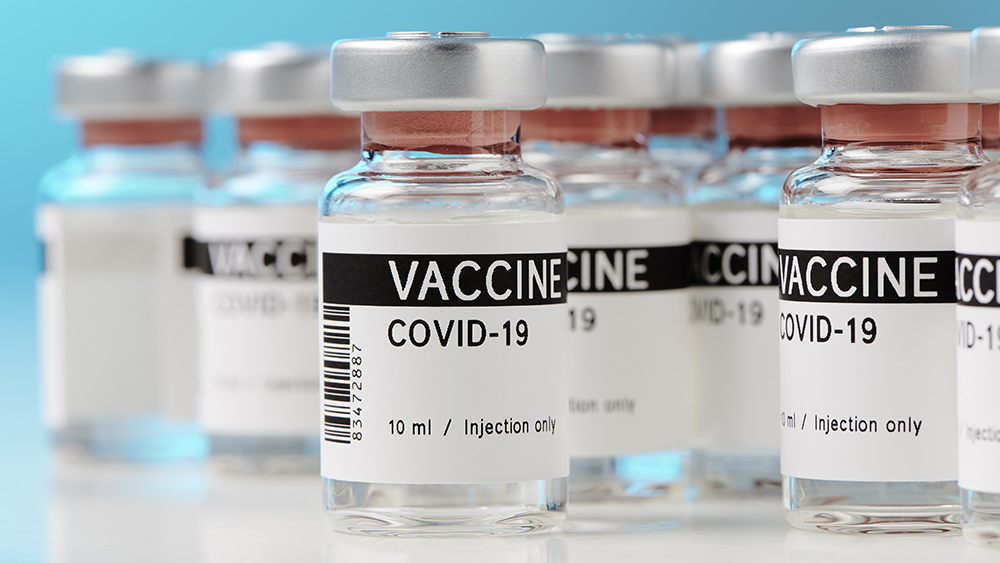Can nutrients from apples help with stem cell therapy?
09/23/2019 / By Evangelyn Rodriguez

Stem cell therapy is a modern approach developed for tissue regeneration. This approach, also known as regenerative medicine, mainly involves the replacement of diseased or damaged cells with healthier and newer cells. Although stem cell therapy was initially conceived with embryonic stem cells as its main components, controversy regarding the use of such cells has made researchers look for other viable cell alternatives. Today, adult stem cells (ASCs) are widely studied for their potential in regenerative medicine. However, unlike embryonic stem cells, ASCs have limited capabilities, particularly in terms of proliferation and differentiation. But in a recent study, researchers from South Korea discovered a way to circumvent these limitations. In their article, which appeared in the journal Nutrition Research, they reported that apple extracts can increase the proliferation potential of ASCs.
Apple extracts can enhance the potential of ASCs for tissue regeneration
According to previous studies, age has a negative effect on the proliferation — the ability to rapidly increase in number — and differentiation — the ability to transform into a specialized type of cell — of ASCs. This natural phenomenon limits the cells’ therapeutic use.
The researchers hypothesized that apple extract obtained using ethanol as a solvent might exert beneficial effects on ASCs, owing to the fruit’s natural ability to stay fresh for a long time. To test their hypothesis, they tested the extract on two different types of ASCs: human adipose tissue-derived mesenchymal stem cells (ADSCs) and human cord blood-derived mesenchymal stem cells (CB-MSCs).
The researchers reported that the apple extract successfully enhanced the proliferation of both types of cells. The extract also induced the phosphorylation — an important process for protein regulation and cell signaling — of the following in a stepwise manner:
- p44/42 MAPK (ERK) — a pathway involved in the regulation of cell proliferation
- Mammalian target of rapamycin (mTOR) — a central regulator of cell metabolism, growth, proliferation, and survival.
- p70 S6 kinase (p70 S6K) — a regulator of cell growth and survival
- S6 ribosomal protein (S6RP) — controls protein translation
- Eukaryotic initiation factor (eIF) 4B — a regulator of protein synthesis
- eIF4E — an RNA-binding protein that signals the start of translation
The apple extract also significantly induced the production of vascular endothelial growth factor (VEGF) and interleukin-6 (IL-6) in both ADSCs and CB-MSCs. VEGF stimulates the growth of new blood vessels while IL-6 regulates the expression of VEGF.
Based on these results, the researchers concluded that the beneficial effects of apple extract on the proliferation of ASCs might overcome the cells’ limitations in terms of therapeutic use for tissue regeneration.
An apple a day
Apples are legit superfruits. They are highly nutritious — rich in fiber and micronutrients — and bursting with phytochemicals that help prevent various diseases. The powerful compounds found in apples have antioxidant, anti-inflammatory, cardioprotective, and neuroprotective properties that support health in many ways. Some of the benefits associated with these delicious fruits include:
- Improves brain health
- Lowers bad cholesterol
- Prevents dementia
- Reduces stroke risk
- Decreases the risk of diabetes
- Helps prevent breast cancer
- Promotes digestive health
- Fights obesity
Apples are also great sources of important vitamins such as vitamin C, which boosts immunity, and B-complex vitamins, which support cellular health. To get the best out of these superfoods, follow the popular saying and eat an apple a day. Remember to eat the peel with the flesh as it contains most of the antioxidants and fiber in apples. If you’re diabetic, apples do not cause blood sugar spikes so you can enjoy eating one every day, too.
Sources include:
Submit a correction >>
Tagged Under:
adult stem cells, aging, anti-aging, anti-aging science, anti-inflammatory, antioxidants, apple extracts, apples, biotechnology, brain health, breadt cancer, cardioprotective, cell aging, cell proliferation, cholesterol, degenerative diseases, diabetes, dietary fiber, digestion, digestive health, disease treatments, food science, fruits, functional food, heart health, mesencymal stem cells, natural cures, natural medicine, neuroprotective, nutrients, prevention, regenerative medicine, research, stem cell therapy, Stem cells, tissue regeneration
This article may contain statements that reflect the opinion of the author
RECENT NEWS & ARTICLES
COPYRIGHT © 2017 RESEARCH NEWS





















